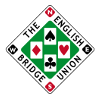
by Alan Manch
1985
He was the brother of Dr Jacob (Ascent of Man) Bronowski. He had his brother's intellect but in addition a dynamic drive, an obsessional perfectionism. He was slight of build, of a prickly disposition and difficult to befriend.
During world war Two he served in the RAF and emerged from the conflict as a bomber pilot with the rank of squadron leader. After return to civilian life he resumed his law studies and qualified as a solicitor in 1947.
During this time he applied a penetrating intelligence to research on bridge and the outcome was the publication of his book The Baron system, introducing a corpus of brilliant pioneering concepts which have long since become embodied in the everyday give-and-take of the game as we know it today.
After I arrived in London in 1948, I played bridge with and against him in various clubs most nights for a number of years. I had a very high opinion of his game and found him the toughest competitor I have encountered. He won the Gold Cup in 1949 and 1952* and was undoubtedly of international status but he was not selected to represent his country. He was the finest player never to receive international recognition.
In 1952 he went to Rhodesia and practiced in the law courts in defence of coloured opponents of the Ian Smith regime. His wife and family were persecuted and he himself was thrown into jail repeatedly, but he always emerged to return to the legal battle. Eventually this thorn in the side of the regime was imprisoned in a tiny wooden hut in the blazing heat of the desert and after five months of unbearable solitary confinement he was unable to endure more and returned to London a mentally sick and broken man.
As an old friend he turned to me for help and I was privileged to provide professional care for eight months while his tenacious personality recovered. During this time he played at Stefan's Bridge Circle and we often discussed the merits of innovations which had crept into the game during his long absence. He had not seen a playing card for seventeen years, but it is a measure of his skill that he nearly cleaned the club out.
He then returned to Africa and was appointed a senior judge in Zambia. Five years later I met him in London as he passed through on his way to New York to represent Zambia at the United Nations. I never saw him again.
He was a Legal adviser to the blacks in the Lancaster House negotiations of 1979 which led to the establishment of the state of Zimbabwe. Eighteen months ago he was appointed chief Justice of Zimbabwe but with tragic irony these laurels were snatched from him when he surrendered the post after only three months on grounds of iII health, an illness which presumably brought his end.
He was a great man who could easily have made his mark, if he chose, in any pleasant field of endeavour, but he spent his life fighting injustice, his only weapon a matchless intellectual integrity. His death diminishes us. In writing these lines I am indebted for his collaboration to my old friend, Mr Louis Tarlo.
* - the EBU records indicate he won in 1946 and 1951
Gold Cup Winner: 1946 and 1951
Crockfords Cup Winner: 1947 and 1948
Autumn Congress Two Stars Pairs Winner: 1945
